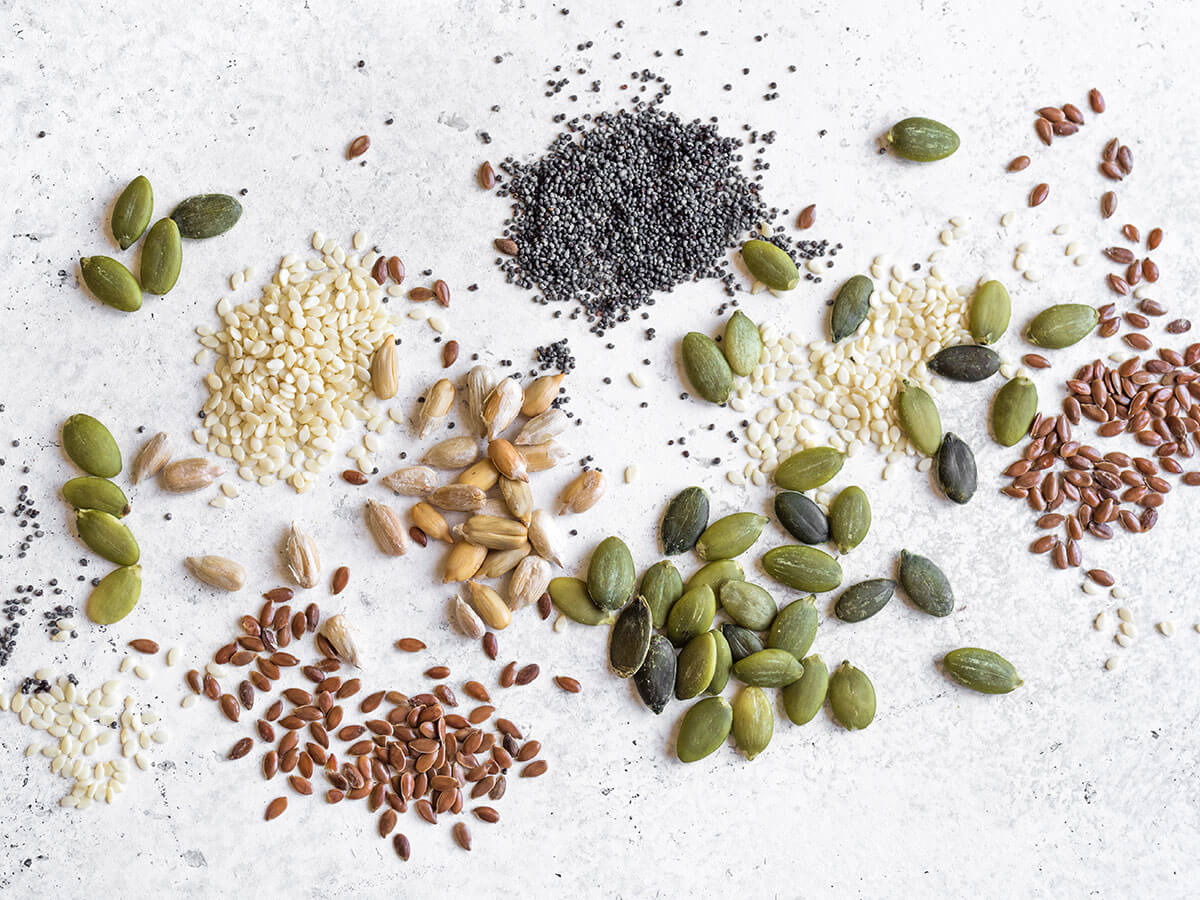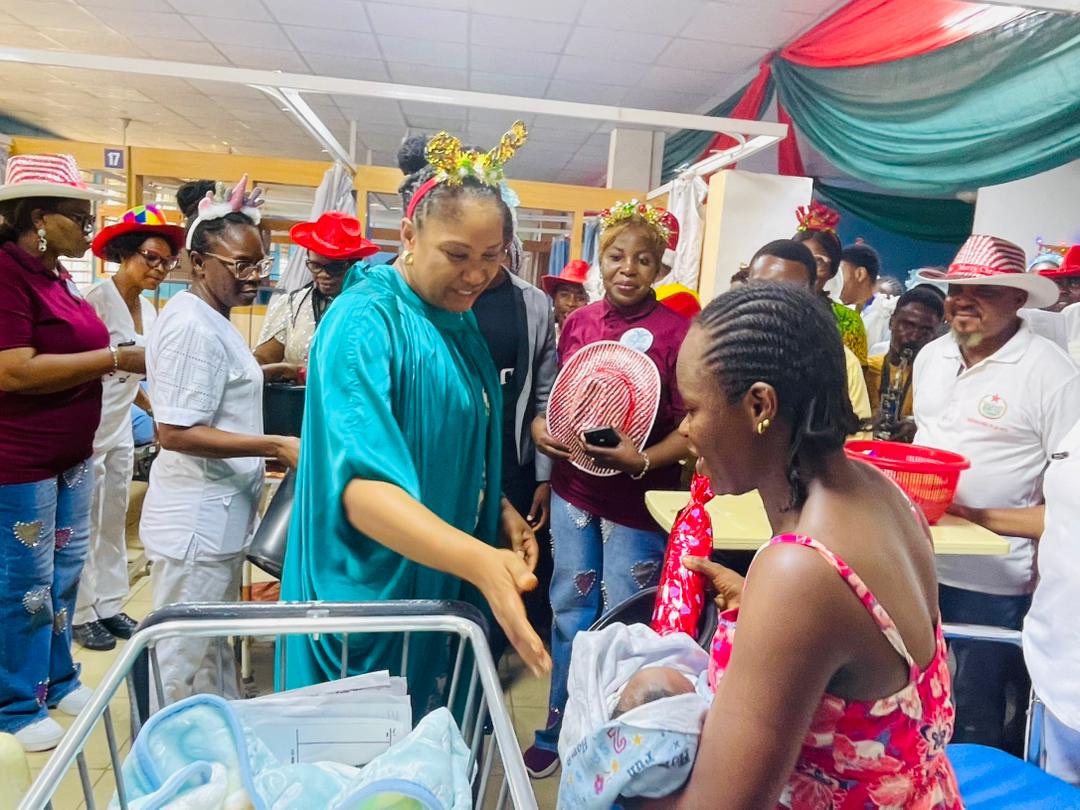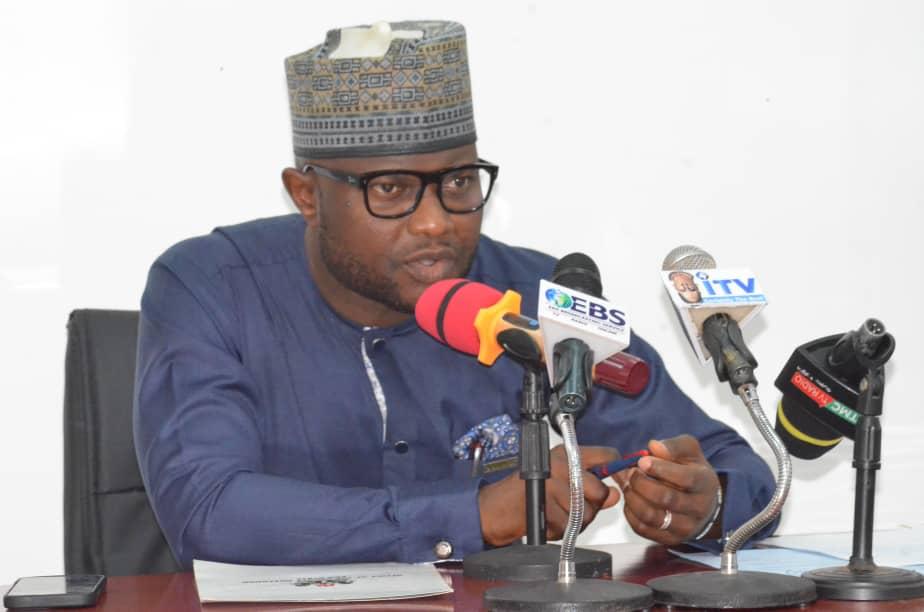News
World Seed Day: Withdraw From UPOV, Groups Urge Nigerian Govt

By Joseph Ebi Kanjo
Health of Mother Earth Foundation (HOMEF) and Environmental Rights Action, have called on the Federal Government to withdraw from the International Union for the Protection of New Plant varieties (UPOV 1991), arguing that the Law, which is line with the UPOV’s provisions, undermines traditional agricultural practices and threatens farmers rights and freedom by opening the door for corporate control.
In a statement issued by Kome Odhomor Media/Communications Lead, HOMEF, to commemorate this year’s World Seed Day, the organizations, while acknowledging the resilience, knowledge and ingenuity of small holders farmers all over the world who have for generation preserved the biodiversity of seeds and food sovereignty, said they have been campaigning against UPOV since 2021.
With the 2025 World Seed Day themed ‘Empowering Farmers-Protecting Biodiversity,’ the Ecological Think Tank, urged the Nigerian government to promote farmer-managed seed systems and invest in local, resilient seed networks that secure food and ecological justice.
In the statement, Nnimmo Bassey, Executive Director, HOMEF, stated that the Nigerian Plant Variety Protection (PVP) Law fails to recognize the country’s unique agricultural landscape.
READ ALSO: World Earth Day: HOMEF Holds Climate Justice Assembly, Tasks N’Delta Activists On Unity
“HOMEF in partnership with other national and international organizations has since 2021 campaigned against the set up of the Nigeria’s Plant Variety Protection (PVP) Law which was developed as a requirement for membership in UPOV.
“The PVP Law threatens farmers right, biodiversity and our food sovereignty.
“Despite our collective voice and a lawsuit against some key components of the law, The Nigerian government on 27th February 2025, deposited the instrument of accession and Nigeria was approved as the eightieth member of UPOV on 27th March 2025.”
Bassey, who argued that the law creates an imbalanced environment where Intellectual Property Rights override farmers’ rights, added: “It promotes the dominance of commercial seed systems over farmers’ and indigenous seed systems, thereby marginalizing the very people who have sustained our food systems for generations.”
READ ALSO: HOMEF Charges Speedy Clean Up Of Ogoniland, N’Delta
Also lending her voice in the statement, Joyce Brown, Project Lead on Hunger Politics, HOMEF, noted that careful analysis of the PVP Law has shown that it places severe restrictions not only on the use of farm-saved seed (propagating material) but extends to harvested material (e.g., grain) and even further to products made directly from harvested material (e.g., milled maize).
Brown further argued that the PVP law encourages the genetic modification of crops which have direct implications on human (use of herbicides and pesticidal crops) and environmental health (monocultures) as well as on biosafety (destruction of non-target organisms).
On her part, food sovereignty activist and Deputy Director of Environmental Rights Action, Mariann Bassey-Orovwuje highlighted that “the process of development of the PVP law was less than transparent, with no public hearings and lack of consultations and participation of smallholder farmers. This is in contrast to the Nigerian Constitution of 1999 which provides for democracy and social justice as per Article 14 (1) and 14(2) (c ).”
In addition, she pointed out that “the law grants final decision-making power to the Minister of Agriculture, particularly in cases of appeal regarding breeder’s rights.
“This provision violates Section 36 of the Nigerian Constitution, which guarantees every citizen the right to a fair hearing and access to justice through the courts.
READ ALSO: International Day For Biological Diversity: HOMEF Calls For Preservation, Reconnection To Nature
“Concentrating such powers in the hands of a single authority undermines democratic principles and judicial independence.”
The groups, therefore, advised that “Nigeria should develop a “sui generis” plant variety protection system tailored to Nigeria’s unique agricultural context, drawing from the African Model Law.
“Such a system should ensure that protection mechanisms do not privilege commercial interests at the expense of communal, farmer-driven seed systems.
“It is essential that this law be developed through inclusive, bottom-up consultations with farmers, indigenous communities, civil society, and public research institutions.
“This seed law must guarantee farmers’ rights, including the right to save, use and exchange farm-saved seeds without criminalization; ensure full transparency and public access to breeder applications to protect against exploitation and safeguard indigenous knowledge; support smallholder farmers through credible credit facilities, infrastructure, and support for public research institutions that serve farmers’ needs.
“Also, Nigeria should prioritise the set up of seed banks at community, local government and state levels to ensure the preservation of indigenous varieties.”
News
YULETIDE: UBTH CMD Charges Nigerians To Be Hopeful In Coming Year

The Chief Medical Director of the University of Benin Teaching Hospital (UBTH), Prof. Idia Ize-Iyamu has urged Nigerians to remain optimistic about the upcoming year, despite current challenges.
Prof. Ize-Iyamu expressed optimism that the coming year would bring improvements for everyone.
The CMD made these remarks during the Nine Lessons and Carol night /End of Year Party organized by UBTH for staff and students held in Benin.
Prof. Ize-Iyamu encouraged everyone to place their trust solely in Christ to overcome the numerous challenges facing the country.
READ ALSO:UBTH CMD Laments Inadequate Heath Workers, As Minister Promises Increased Funding
She expressed her gratitude to the hospital community for their support during her first four months in office.
Prof. Ize-Iyamu assured them that the coming years hold many opportunities and that hope in Christ would transform lives daily, just as Christ’s birth brings joy and is the reason for the season.
She also extended her appreciation to everyone in the spirit of the season.
READ ALSO:UBTH Marks 2023 World Antimicrobial Resistance Awareness Week
“I want to appreciate everyone in the spirit of the season. Our commitment to excellence and professionalism remains at UBTH.
“UBTH CARES and just like Christ cares. As we celebrate Christ and the season. Let’s hope on him. When you have Christ, you have hope.We are hopeful that the coming year will be better as a people and institution,” Ize-Iyamu said.
The ceremony’s highlight featured a visit to the hospital wards where the CMD distributed gifts to patients and newborns, with management, staff, and students in attendance.
News
Christmas: Edo Deputy Gov Preaches Unity, Hope

The Deputy Governor of Edo State, Hon. Dennis Idahosa has called on residents of the state to embrace unity, love, and renewed hope as Christians celebrate Christmas.
In a statement by his Chief Press Secretary, Mr Friday Aghedo, Idahosa emphasised that Christmas represents values that unite people, regardless of tribe, religion, or politics, promoting compassion, generosity, and peace.
He described the birth of Jesus Christ as a timeless reminder of the values of peace, sacrifice, and compassion, which he said are critical to societal growth and harmonious coexistence.
He urged Edo people to take advantage of the festive season to strengthen communal ties, extend goodwill to the less privileged, and recommit themselves to the collective development of the state.
READ ALSO:Edo Dep. Gov. Idahosa Inducted, Bestowed With Rotary Premium Award
The deputy governor further said that Christmas underscores the importance of shared humanity and collective responsibility in building a prosperous society.
“Christmas is a season that reminds us of the power of hope and shared humanity.
“As a people, we must continue to stand together, support one another, and work collectively for a more prosperous Edo State,” Idahosa said.
READ ALSO:Okpebholo, Idahosa Bag UNIBEN Distinguished Service, Leadership Awards
He reassured residents of the state of the firm commitment of the Governor Monday Okpebholo-led administration to enthrone good governance, inclusive development, and people-oriented policies aimed at improving the welfare and well-being of all Edo citizens.
Idahosa also appealed to residents to celebrate the season responsibly and sustain peace and harmony before, during, and after the festivities.
He wished Christians a joyous Christmas celebration and prayed for a peaceful, progressive, and prosperous Edo State.
News
YULETIDE: Edo Sports Commission Boss Preaches Unity, Peace

The Executive Chairman of the Edo State Sports Commission, Hon. Amadin Desmond Enabulele, has extended warm Christmas greetings to athletes, coaches, sports administrators, journalists, and the people of Edo State, urging them to uphold the enduring values of love, peace, and unity that define the festive season.
In a statement issued by his Media Officer, Edoko Wilson Edoko, Hon. Enabulele described Christmas as a period of reflection, gratitude, and renewed commitment to collective progress and shared responsibility.
“I sincerely appreciate all stakeholders in the sports sector for their cooperation, resilience, and unwavering support throughout the year. Your contributions have been instrumental to the growth and success of sports in Edo State,” he said.
READ ALSO:Edo SWAN Distances Self From Online Publication Against Enabulele
He further commended Edo athletes for their dedication and discipline, noting that their consistent performances have continued to bring pride and recognition to the state at both national and international levels.
According to him, the Commission remains committed to athletes’ welfare, grassroots sports development, and the creation of opportunities that will enable talents to flourish.
Enabulele also called on residents of the state to celebrate responsibly and show compassion to one another, particularly the less privileged, emphasizing that unity and peaceful coexistence are vital for sustainable development.
READ ALSO:How Enabulele Is Driving Okpebholo’s Agenda In Edo Sports Commission
He reaffirmed the Edo State Sports Commission’s resolve to strengthen collaboration with partners and stakeholders in the coming year, with increased focus on excellence, transparency, and inclusive sports development.
The Sports Commission boss concluded by wishing everyone a joyous Christmas celebration and a prosperous New Year filled with hope, good health, and greater achievements.

 News3 days ago
News3 days agoPHOTOS: New Era In Furupagha-Ebijaw As Okpururu 1 Receives Staff Of Office

 News2 days ago
News2 days agoUBTH CMD Marks 120 Days In Office, Expresses Commitment To Providing Conducive Working Environment

 News3 days ago
News3 days agoFG Declares Public Holidays For Christmas, New Year Celebrations

 News3 days ago
News3 days agoOPINION: Gumi And His Terrorists

 News2 days ago
News2 days agoFIRS Confirms NIN As Tax ID

 News2 days ago
News2 days agoOPINION: My Man Of The Season

 Metro2 days ago
Metro2 days agoFintiri Pardons Man Sentenced To Death For ‘Killing Herdsman In Self-defence’, Others

 News3 days ago
News3 days agoOPINION: Christmas And A Motherless Child

 News2 days ago
News2 days agoKWAM 1 Withdraws From Awujale Race, Ends Court Challenge

 Metro2 days ago
Metro2 days agoPetrol Tanker Crashes Into Akpabio’s Convoy, Kills Police Dispatch Rider






























